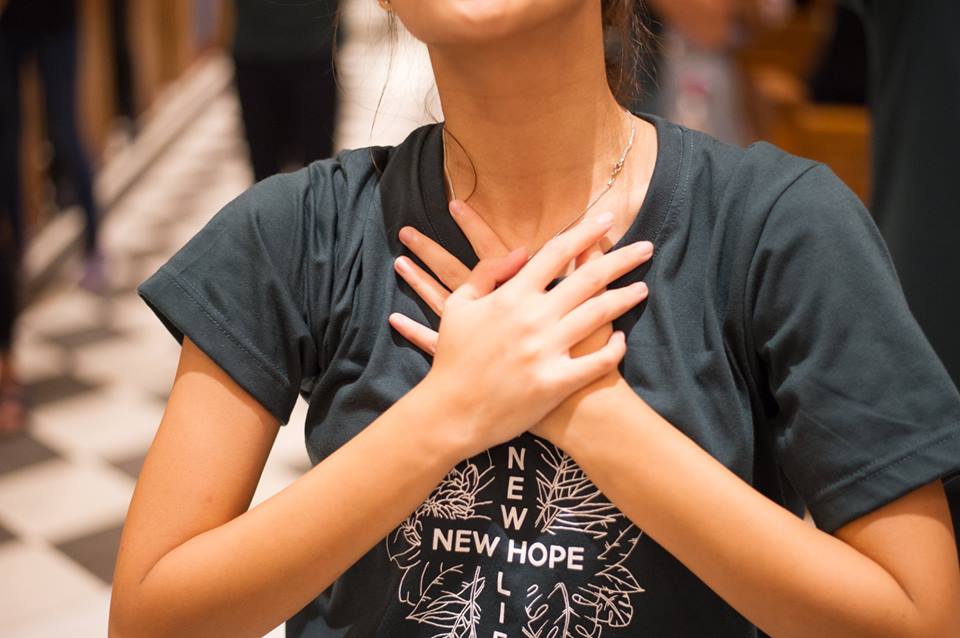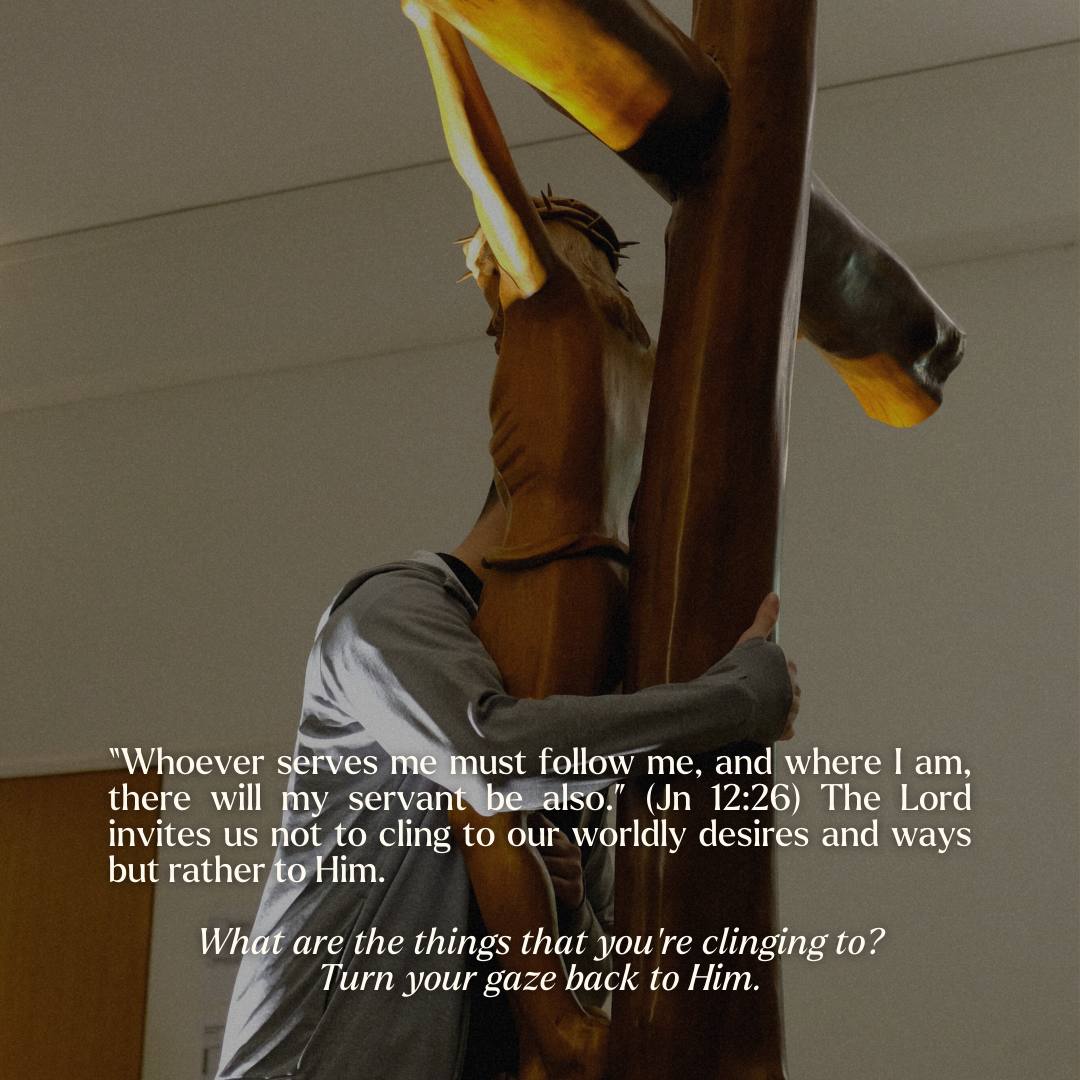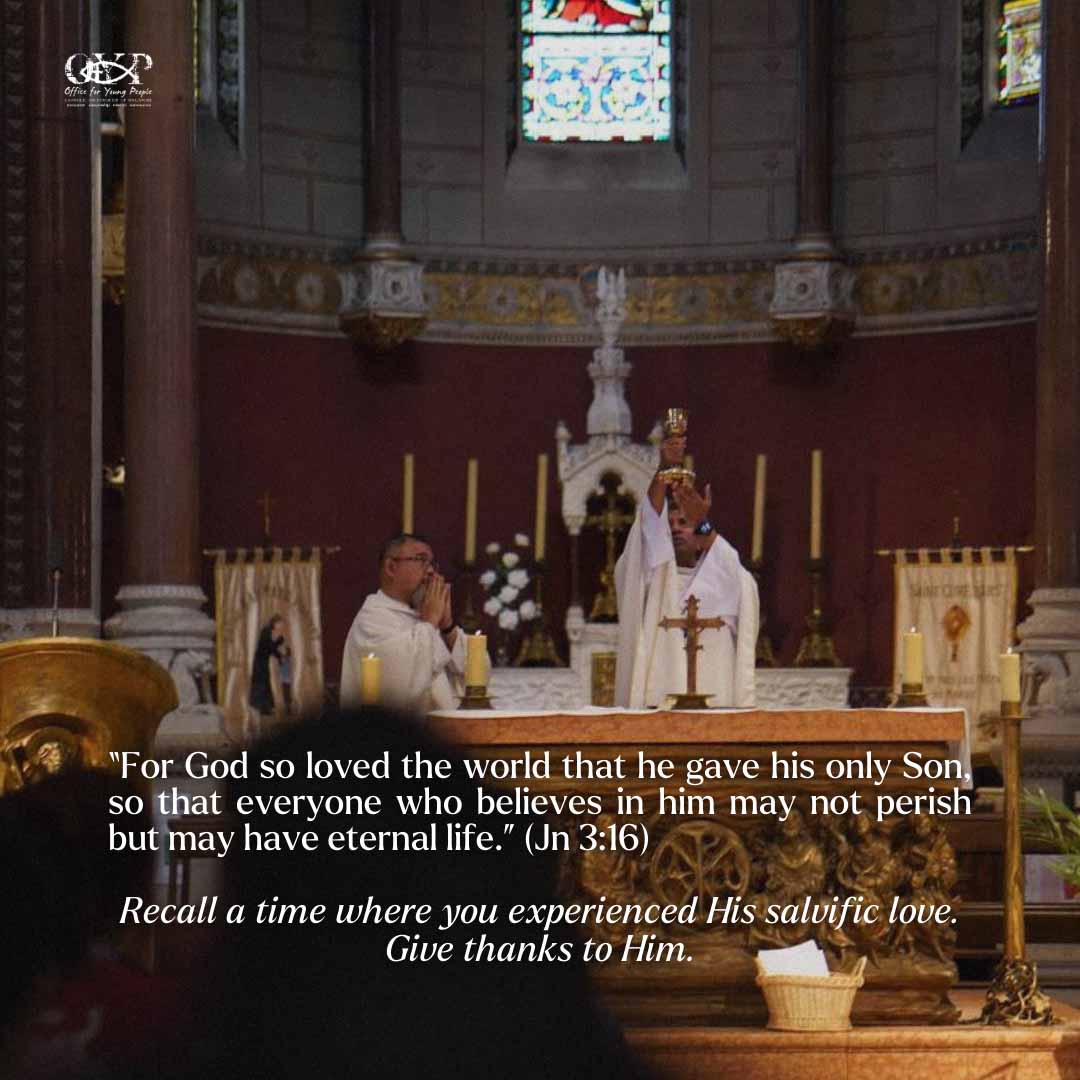by Ariel Leia See
The Desire to Love and be Loved
My dear sisters, have you ever had (or do you still have) this insatiable longing deep within your hearts to love and to be loved?
I know I do. Since I was a little girl, I wished to be chosen, seen and fought for. I wanted to be welcomed as unshakably good and told I was beautiful. In my heart, I also longed to have a vital part to play in something large and good. I wanted to believe that there was something in me that was needed desperately.
Yet how many of us are actually able to boldly voice out these feelings and desires? More often than not, we find ourselves belittling them, convincing ourselves that they do not mean as much to us as they really do. Worse still, we sometimes shy away from opportunities to give or express our love for others.
In truth, these desires make up our very vocation as women. Unlike our brothers, whose nature is generative in their call to lay down their lives for us, we are called to imitate Mary, who first received the Son of God with her fiat; our bodies were created to receive new life, but we are also called to receive God’s love in our hearts and spirits. When we realise this nature of receptivity, it allows us to be sensitive to the needs of others, to see beyond the exterior and look into the deepest needs of the human heart. Like Martha and Mary, we also have a unique capacity for generosity and hospitality. As such, it is clear that our desire to receive and to give love is intrinsic and embedded into our nature as women.
So why do we try our best to hide and suppress these desires, which are neither negative nor impure? Where do these feelings of embarrassment or even disgust we carry with us for having these desires come from?

Shame arises from the wounds we receive from our environments.
Shame can arise as a result of wounds inflicted by our families. As children, our parents are our first community, to whom we look up to and believe to always be right. From our mothers, we learn what it means to be a woman; how to be merciful and to love tenderly. Little girls often look to their fathers for the attention that they seek and the security and protection that they need. From our fathers, we also learn the value that a woman has in society but mostly, the value that we hold as women. However, the “unconditional love” of a parent is ultimately still a human love with its imperfections. Our parents are unable to fully fulfil our innate need for love and more often than not, also end up wounding us.
At a young age, we may not have the mental capacity or maturity to process and sort through what is happening to us. If we are belittled, hurt or not given the attention we sought for, we begin to believe that somehow, we are the problem. We cannot help but believe that if we were different, if we were better, then we would have been loved as we so longed to be. Shame makes its crippling home deep within our hearts. It is that voice in our head that tells us we are unworthy and undeserving of love. The feeling that we are broken and beyond repair. It creates this sense that if someone really knew us, they would shake their heads in disgust and run away.
Shame can also arise from wounds inflicted on us by society. In the world that we live in today, heavy emphasis is placed on the importance of a woman’s figure and outer appearance. We are not treated with the respect that we deserve, and our bodies are often objectified. In some workplace environments, women are still deemed as inferior and do not have the freedom to speak their minds. These bad experiences tell us that we are not being pursued or protected. We cannot rely or count on others to save us. As a result, we fall into the lie that to be a woman is to be powerless, that there is nothing good about vulnerability; that it is just mere weakness. And perhaps more prevalent in our day to day lives, we are shamed and mocked for being “overly dramatic”, “attention seeking” or “a suck up” on occasions where we do show our emotions.
Shame makes us feel very uncomfortable with our beauty. Few of us believe we are beautiful and fewer of us are comfortable with it. We either think we do not have any beauty or if we do, that it is dangerous and bad. We believe the lie that our efforts to love are pointless and not appreciated in the world.
As wounds accumulate in our lives over the years, we begin embracing the lies that they carry with them. We accept this twisted view of ourselves and from that, we chose a way of relating to our world. We vow to never be in that place again and try to save ourselves by adopting strategies to protect us from being hurt again.
Strategy 1: Seeking Control & Refusing to be Vulnerable
For some of us, we harden our hearts and seek to be in control of everything. We refuse to be vulnerable or to accept help from others. Some of us may proclaim in annoyance that “I am a strong independent woman” when a brother simply offers to carry a stack of heavy chairs that we are struggling with, or when he, out of good intent, simply opens a door for us. Some of us may have also said “I need no man in my life” when we talk about relationships with our friends.
When we do this, in actual fact, we are killing our heart’s longing for intimacy so that we will be safe and in control. We may dominate and control because we fear our vulnerability. This self-protective way of relating to others has nothing to do with real loving and nothing to do with deeply trusting God. It is our gut-level response to a dangerous world. This strategy results in women not only always having to be on their toes and having their guard up, but also in the gradual loss of their innate gifts of tenderness and mercy.
Strategy 2: Hiding
Shame causes us to hide. Deeply etched in our minds is the lie that going into hiding keeps us safe and allows us to hurt less. We become silent and do not say what we see or know when it is different from what others are saying, because we think we must be wrong. We vow to protect ourselves by never causing pain, never requiring attention. To be invisible. We hide our needs, desires and our very heart. Personally, I fell into this category of coping. I thought that if I just became the person everyone wanted me to be, the conflicts and frustrations my loved ones felt because they struggled to accept the differences they saw in me, would decrease. I tried very hard to change myself, did what I was told to do and shied away from my own desires. But as I continued to suppress myself, I felt miserable and suffocated on the inside. Deep down, I knew that the life I was living was a lie.
Strategy 3: Settling for Less
The wounds we receive also cause us to lose our sense of self. We flee to false refuges and settle for less. We may know a fellow sister who got into a relationship the moment someone showed her affection and lavished her with praise, only to experience a break up a few months later. We may also know sisters who have been in unhealthy relationships where there has been psychological or physical abuse, but who did not have the courage to step out of the relationship.
When we settle for less, we do not believe that we are worthy of love or that there is someone who is willing to give us this love that we so desperately hunger for. Ultimately, we do not find the fulfillment or true joy we yearn for in these relationships.
Jesus Christ: The Source of Healing
My dear sisters, when we desperately use these strategies to try and save ourselves, we are merely coping and surviving with our wounds. But what if there is another way? A way to experience healing for our wounds?

As Christians, the way to experience healing is in the person of Jesus Christ himself. It is in Christ where we find our deepest self. In experiencing His love, we no longer have to deny our wounds, but we receive true freedom by allowing Him to redeem us. He meets us exactly where we are and transforms our wounds: they become no longer instruments of destruction, but testimonies to His healing power in our lives to others.
You may find it hard to believe that Christ would love a sinner or someone as wounded or broken as you. But as Mother Teresa perfectly puts it, “The devil may try to use the hurts of life, and sometimes our own mistakes to make you feel it is impossible that Jesus really loves you, is really cleaving to you. This is a danger for all of us, and so sad, because it is completely the opposite of what Jesus is really wanting, waiting to tell you, He loves you always, even when you don’t feel worthy.”
In all of Jesus’ teachings and actions, one can find nothing which reflects discrimination against women. On the contrary, His words and works always express the respect and honour due to them. Jesus’ attitude to the women He met reflects the eternal plan of God who “chose us in Christ before the foundation of the world to be holy and blameless before him in love” (Eph 1:1-5).
In John 8, Jesus risked persecution by choosing to stand up for the adulterous woman, who was about to be stoned for her sin. Having her deepest sin and faults exposed in public by her accusers, she is deeply humiliated. The Lord sees all of this but still looks at her through the eyes of mercy and compassion. Because of His love for her, He gently tells her that He does not condemn her and asks her to go and leave her life of sin.
In the same way, Jesus sees your brokenness, failures and deficiencies but is not scandalized by them. He still looks at you through the most tender, pure and loving eyes. Our Lord is not a passive bystander, but a God that wishes to enter and heal the darkest areas of our lives. To enter into this journey of healing, we need humility to recognize that we cannot change by our own efforts, but that it is through grace and surrender to God that He wins victories in our lives. Every day, we are called to say ‘yes’ to the Lord, to lay down our defensiveness and the ways we have sought to save ourselves. This creates the space for the Lord to be our strength and our defender.
Personally, allowing the Lord to enter into the darkest areas of my life is the best decision I have ever made, as I feel freer and more joyful today than ever before! The Lord has slowly broken down the walls that I had built around myself and has led me to trust the right people who became the face of Christ to me. With His grace, I have been slowly able to accept affirmations and allow myself to be loved by others. Jesus has restored my confidence and helped me to see my own goodness; He shows me that the wounds of my past do not define me, as it is He who calls me worthy and He who equips the called. I am affirmed that I need not be ashamed of these desires that God has placed in my heart to love and care for others.
Having grown more convicted of who Jesus calls me to be, I push myself to be braver, not to shy away from opportunities that come my way to care for others and see myself also more able to stand firm in my beliefs even in the face of persecution and discouragement.

“But whoever drinks the water I give them will never thirst. Indeed, the water I give them will become in them a spring of water welling up to eternal life.” (John 4:14). My dear sisters, truly, Jesus Christ is the only way that will lead you to the freedom and joy that you seek. Do you dare to take this leap of faith? Do you dare to answer your call of who he made you to be and have a taste of this living water that he desires to give you?

Office for Young People seeks to raise up a generation of young people passionately in love with Jesus and His Church.
Follow OYP on Facebook, Instagram, and Telegram now to stay updated with our latest events and happenings!








